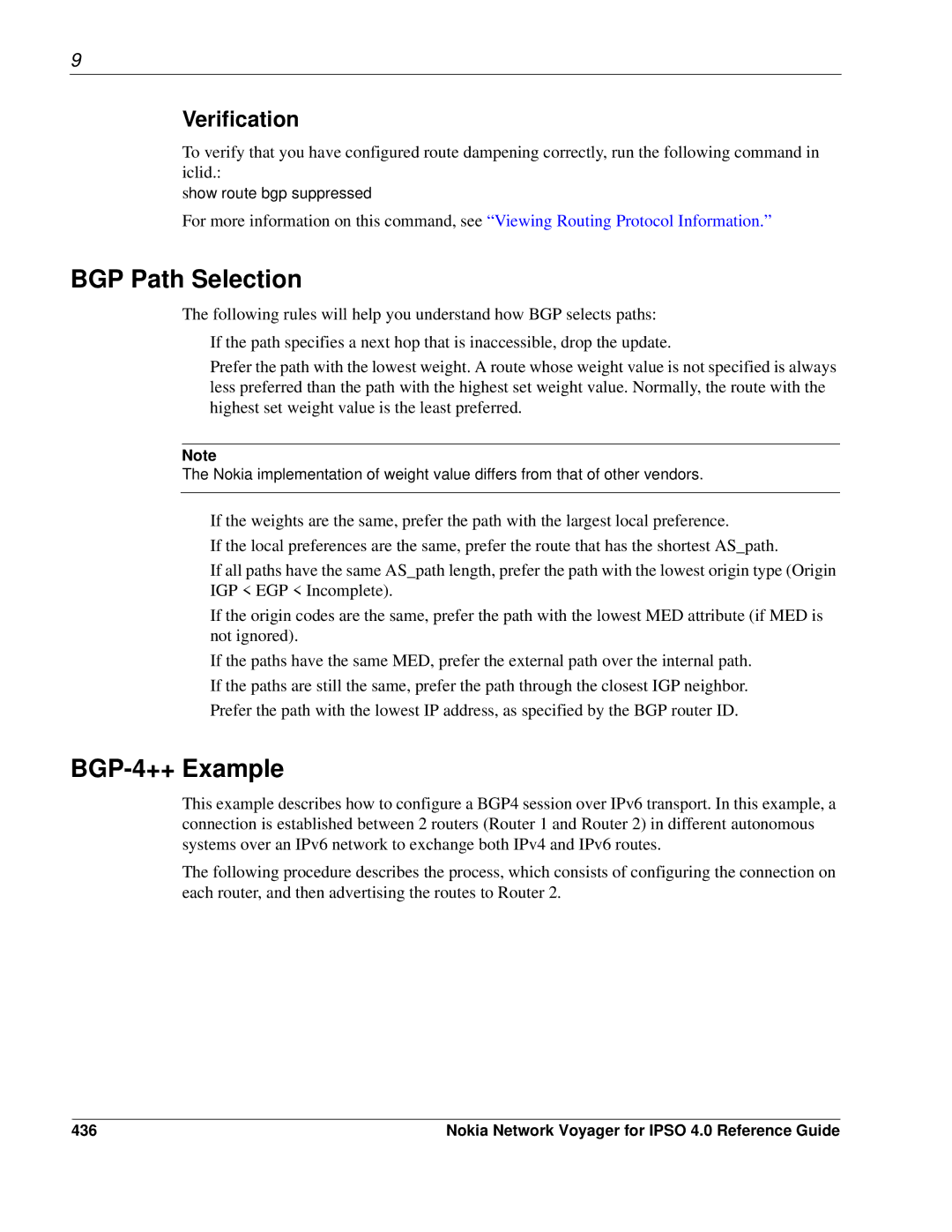
9
Verification
To verify that you have configured route dampening correctly, run the following command in iclid.:
show route bgp suppressed
For more information on this command, see “Viewing Routing Protocol Information.”
BGP Path Selection
The following rules will help you understand how BGP selects paths:
If the path specifies a next hop that is inaccessible, drop the update.
Prefer the path with the lowest weight. A route whose weight value is not specified is always less preferred than the path with the highest set weight value. Normally, the route with the highest set weight value is the least preferred.
Note
The Nokia implementation of weight value differs from that of other vendors.
If the weights are the same, prefer the path with the largest local preference.
If the local preferences are the same, prefer the route that has the shortest AS_path.
If all paths have the same AS_path length, prefer the path with the lowest origin type (Origin IGP < EGP < Incomplete).
If the origin codes are the same, prefer the path with the lowest MED attribute (if MED is not ignored).
If the paths have the same MED, prefer the external path over the internal path.
If the paths are still the same, prefer the path through the closest IGP neighbor.
Prefer the path with the lowest IP address, as specified by the BGP router ID.
BGP-4++ Example
This example describes how to configure a BGP4 session over IPv6 transport. In this example, a connection is established between 2 routers (Router 1 and Router 2) in different autonomous systems over an IPv6 network to exchange both IPv4 and IPv6 routes.
The following procedure describes the process, which consists of configuring the connection on each router, and then advertising the routes to Router 2.
436 | Nokia Network Voyager for IPSO 4.0 Reference Guide |
